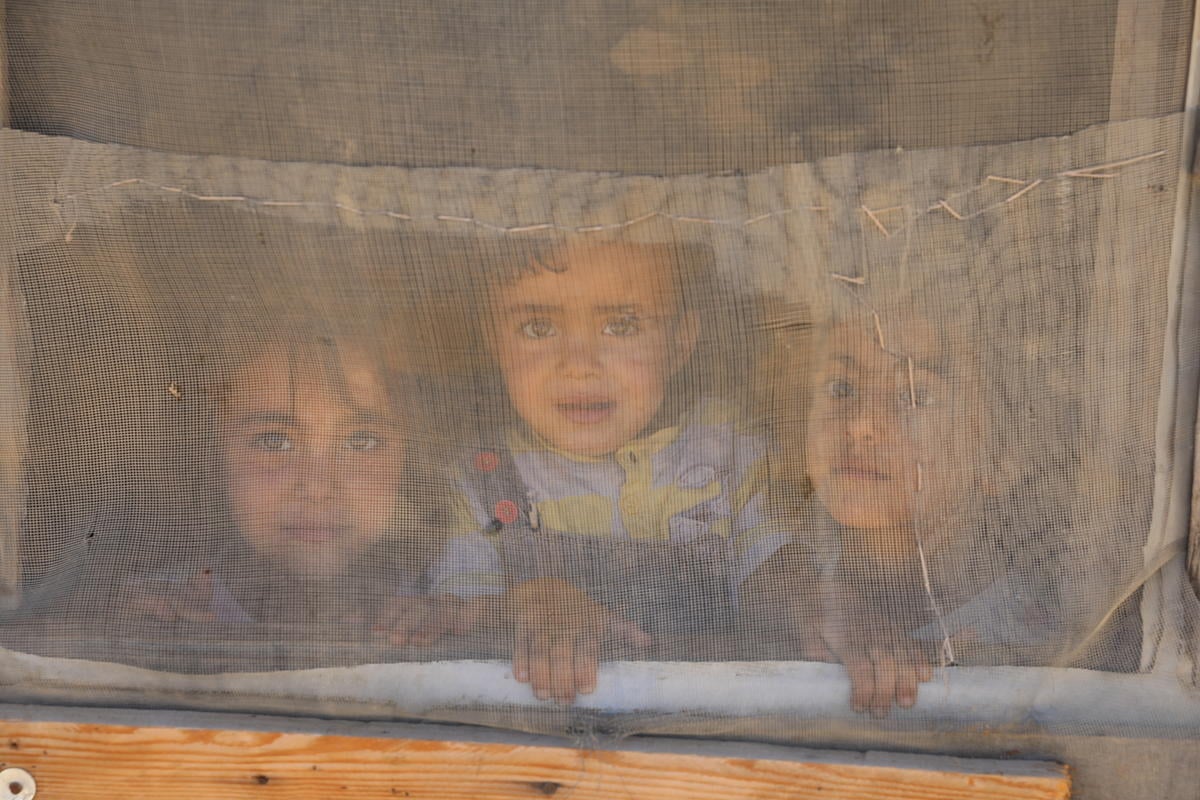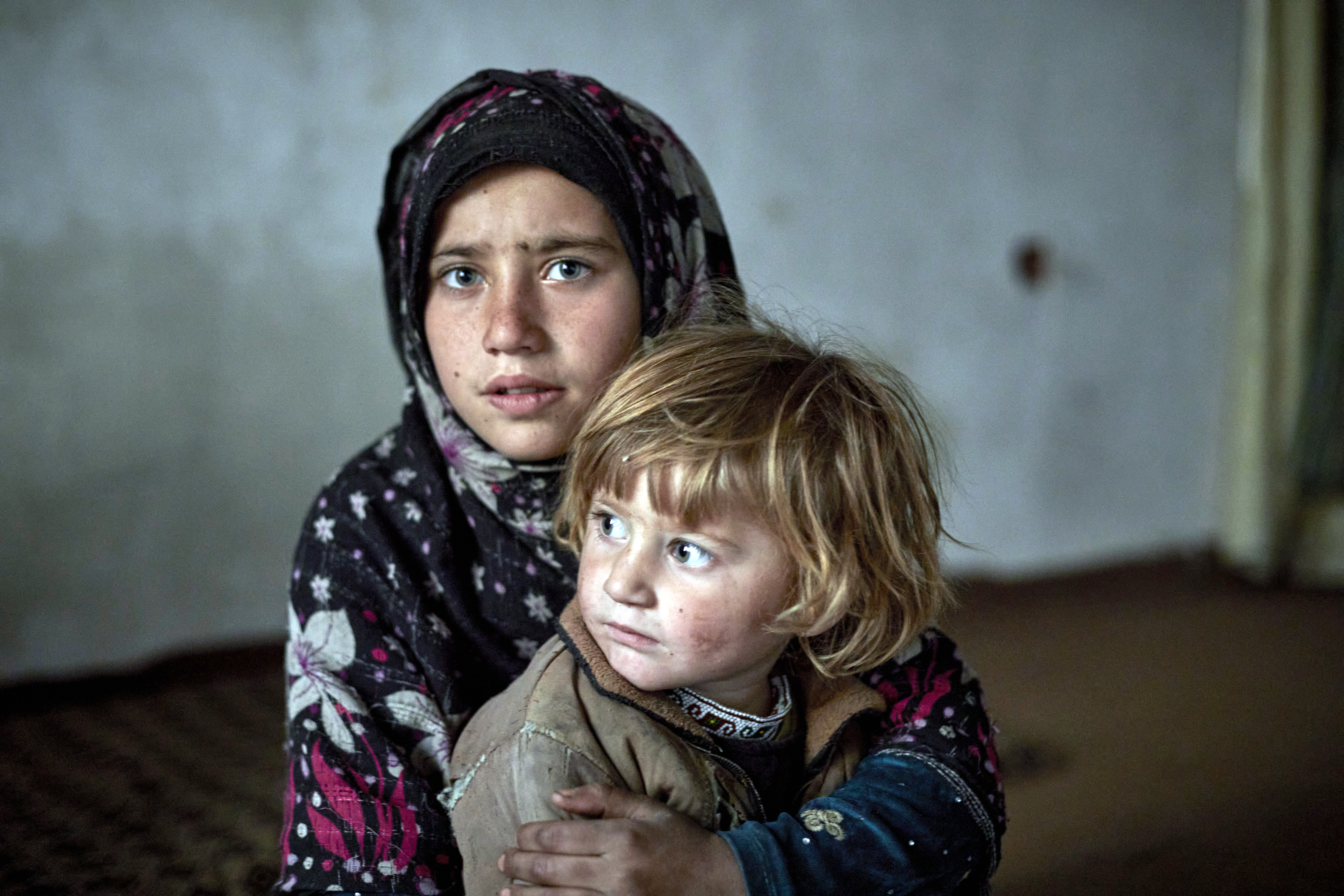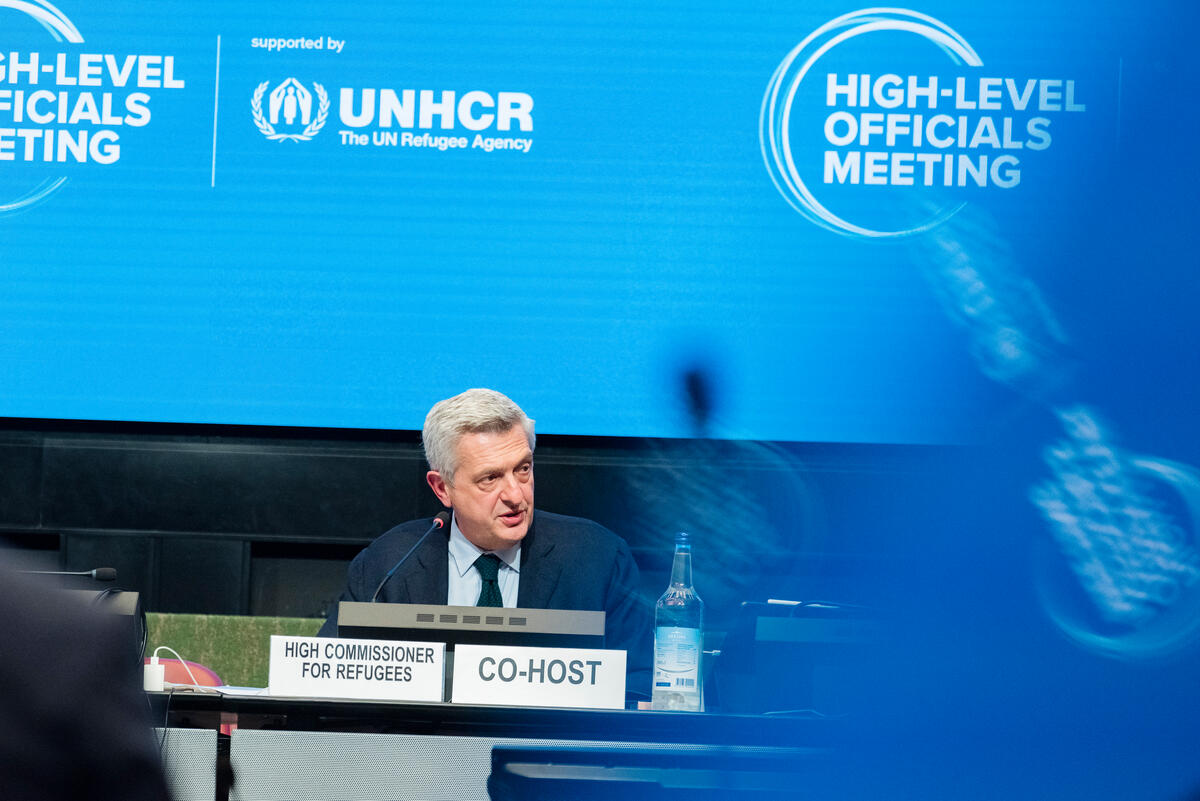Hope wins out as Somali refugee heads to Salt Lake City for a new life
Hope wins out as Somali refugee heads to Salt Lake City for a new life

DADAAB, Kenya, Sept 9 (UNHCR) - Muhioadin Ahmed Aden stares out at the horizon, knowing that the second most important journey of his life will begin today. A struggle within his heart, between despair and a desperate enduring hope, has finally come to a conclusion.
His family sits by his side. His youngest son, Abdi Salim, holds his hand. Salim thinks about the six-year-old's future; the school he will attend, the life he will lead. Hope has won.
Like thousands of other Somalis over the years at Kenya's sprawling, crowded Dadaab refugee complex, Aden has been accepted for resettlement. Today, he travels to Nairobi and in a few days time he will touch down at Salt Lake City in the United States.
"It will be a different life and I think it will be better than this one," he said as he waited to leave. "I look forward to having my children educated. I will live in a house or an apartment, not under plastic sheeting and wooden poles like I have [done] for so long."
At the same time, the 45-year-old pictures the tens of thousands of refugees arriving at Dadaab's Ifo camp just as he did in 1991, when the longer civil strife in Somalia erupted. He sees their beleaguered faces, their confused glances. The faces transport him back to the day when he too was forced to flee Somalia.
His father and two brothers were killed in inter-clan conflict near the southern Somalia town of Kismayu. "I see my past in these people. We were just walking and walking," he said. "I had no idea when I arrived in Kenya that I would live in a refugee camp for the next 20 years."
Aden knows the difficulties the newcomers will face. It was so difficult for him during the first few years. A nomad and a herder in peacetime Somalia, Aden was not accustomed to eating the wheat flower and grains that are distributed in the camps.
During the first few months at Dadaab, it was hard to trust strangers. And even though he was grateful to be out of reach of those who destroyed his family, he still worried for his own security.
Over time, life improved. But it was difficult for him to find work in the camps. It took years before he managed to make his living driving a donkey cart, carrying sand and construction poles for 500 Kenyan Schillings (US$5.3) per day.
He knows he has a lot of learning to do in order to make up for those lost years.
"Do you think in America I can be a taxi driver?" he asked. "It's something I will have to learn." Now, he faces a whole new set of challenges.









